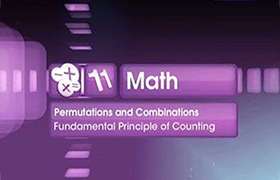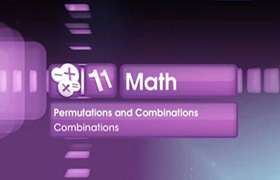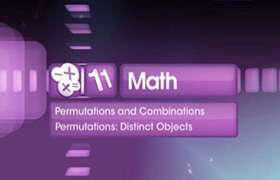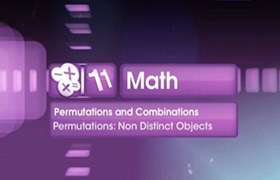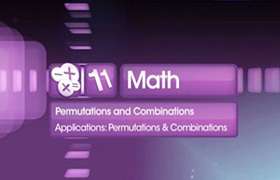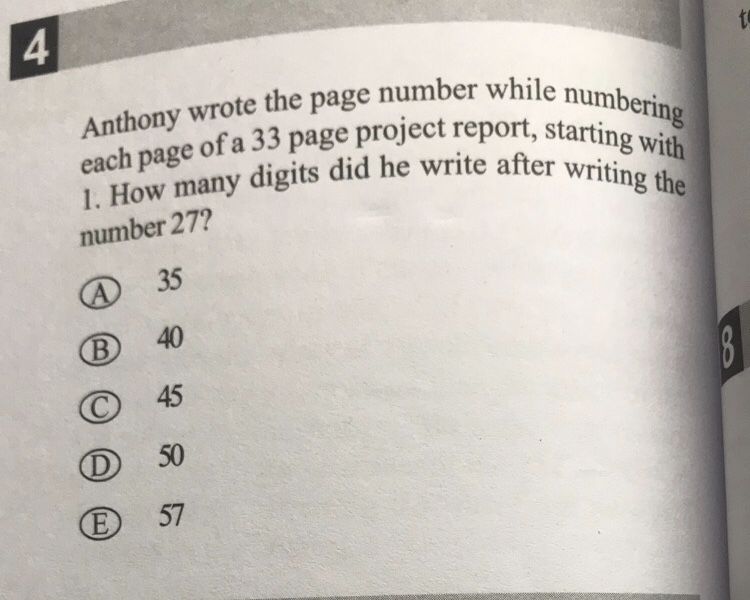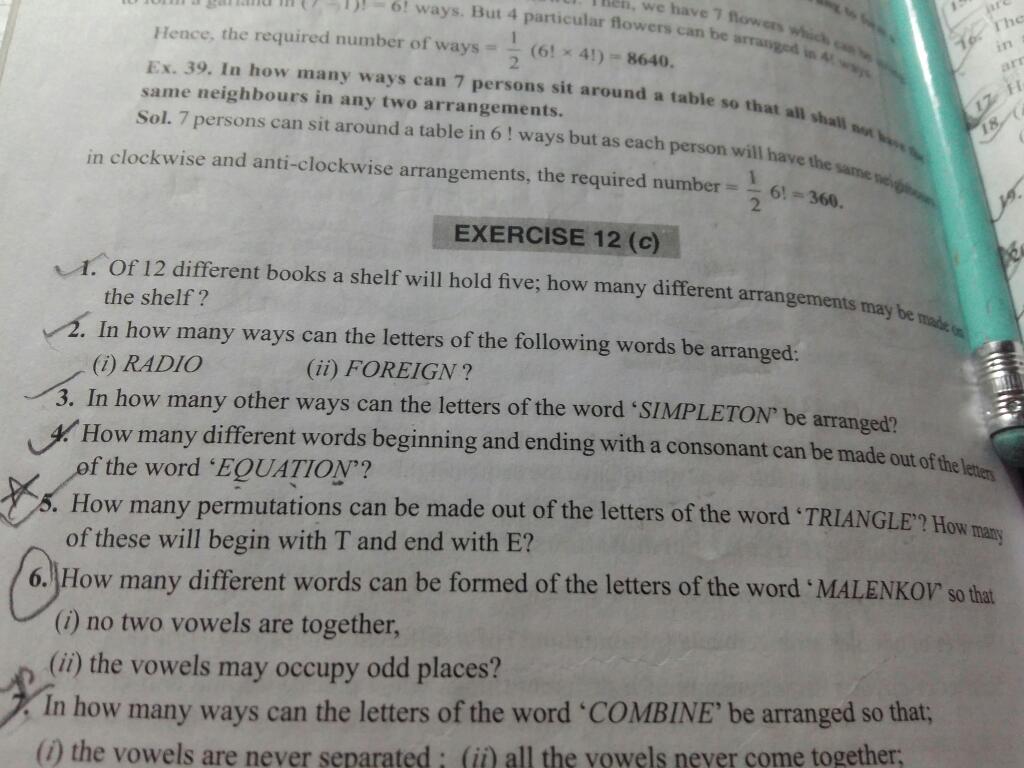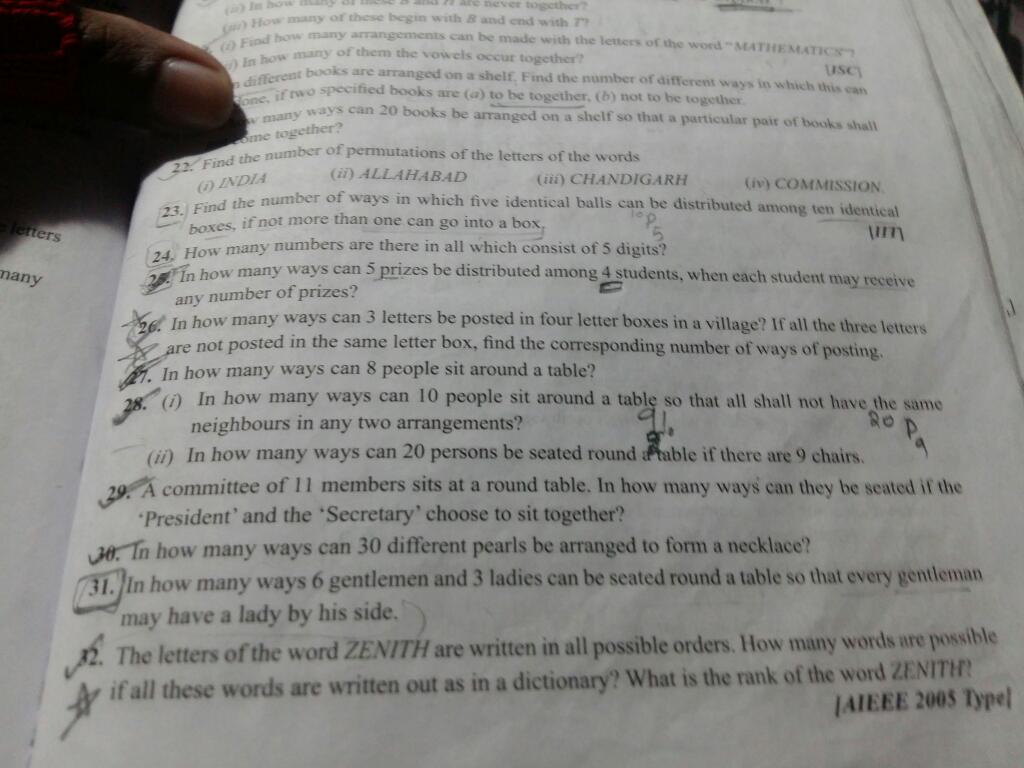CBSE Class 11-science Answered
Permutation & Combination
Asked by | 04 Mar, 2013, 12:07: PM
First, we can ignore 1000000 since its sum of digits is not 18. Also, let's add 0's in front of numbers to have 6 digits if the number has less than 6 digits. So our range is going to be from 000001 to 999999.
Number of partition of 18 into 6 whole number is
(18+6-1)C(6-1)=(23)C(5). Assign these 6 numbers to the 6 digits.
Now, we need to remove the cases where one digit is 10 or bigger. It is very good thing that two digits cannot be 10 or bigger, as the sum would go over 18.
Let one digit has x, where x>=10. The sum of the other 5 digits is 18-x. Since 18-x is partitioned into 5 whole numbers, we have (18-x+4)C(4) possible ways. This should be multiplied by 6 since the big digit can be the first digit, second digit, ..., sixth digit. x is from 10 to 18. So we need to calculate 6((12)C(4) + (11)C(4) + .... + (4)C(4)).
Since (n)C(m)+(n)C(m+1)=(n+1)C(m+1), we get
(4)C(4) + (5)C(4) + (6)C(4) + (7)C(4) + .... + (12)C(4)
=((5)C(5) + (5)C(4)) + (6)C(4) + (7)C(4) + .... + (12)C(4)
=((6)C(5) + (6)C(4)) + (7)C(4) + .... + (12)C(4)
...
=(13)C(5).
Number of partition of 18 into 6 whole number is
(18+6-1)C(6-1)=(23)C(5). Assign these 6 numbers to the 6 digits.
Now, we need to remove the cases where one digit is 10 or bigger. It is very good thing that two digits cannot be 10 or bigger, as the sum would go over 18.
Let one digit has x, where x>=10. The sum of the other 5 digits is 18-x. Since 18-x is partitioned into 5 whole numbers, we have (18-x+4)C(4) possible ways. This should be multiplied by 6 since the big digit can be the first digit, second digit, ..., sixth digit. x is from 10 to 18. So we need to calculate 6((12)C(4) + (11)C(4) + .... + (4)C(4)).
Since (n)C(m)+(n)C(m+1)=(n+1)C(m+1), we get
(4)C(4) + (5)C(4) + (6)C(4) + (7)C(4) + .... + (12)C(4)
=((5)C(5) + (5)C(4)) + (6)C(4) + (7)C(4) + .... + (12)C(4)
=((6)C(5) + (6)C(4)) + (7)C(4) + .... + (12)C(4)
...
=(13)C(5).
Now, since any of the six digits can be greater than 10. So, we need to subtract 6* (13)C(5)
Therefore, the answer is (23)C(5)-6*(13)C(5)=25927.
Therefore, the answer is (23)C(5)-6*(13)C(5)=25927.
Answered by | 05 Mar, 2013, 12:24: AM
Concept Videos
CBSE 11-science - Maths
Asked by kanhaparashar17 | 04 Apr, 2024, 12:55: PM
CBSE 11-science - Maths
Asked by tharshini8456157 | 27 Nov, 2023, 10:32: PM
CBSE 11-science - Maths
Asked by lavanya.toshit | 21 Feb, 2023, 09:16: PM
CBSE 11-science - Maths
Asked by pranshusingh9himalya | 15 Nov, 2022, 01:43: AM
CBSE 11-science - Maths
Asked by ismayilpmamu | 09 Apr, 2020, 10:10: PM
CBSE 11-science - Maths
Asked by kandappan | 10 Feb, 2020, 05:34: PM
CBSE 11-science - Maths
Asked by Kchawla94 | 28 Feb, 2019, 08:07: PM
CBSE 11-science - Maths
Asked by Kashifimam866 | 20 Feb, 2019, 05:58: AM
CBSE 11-science - Maths
Asked by lovemaan5500 | 02 Feb, 2019, 08:23: PM

